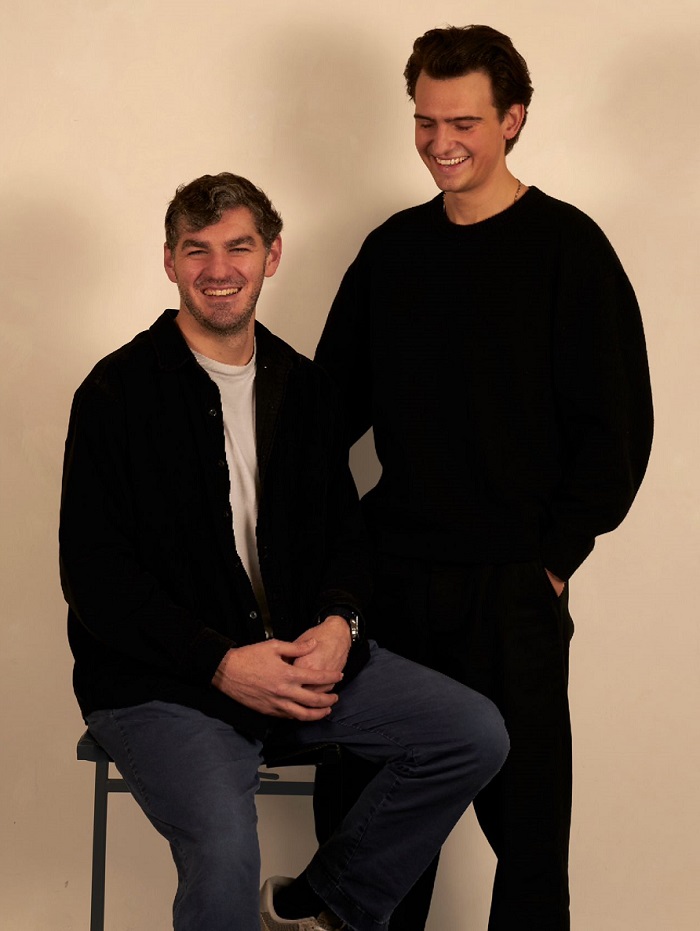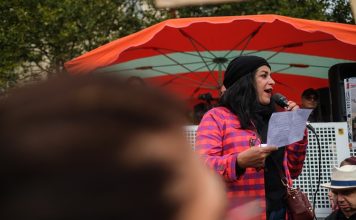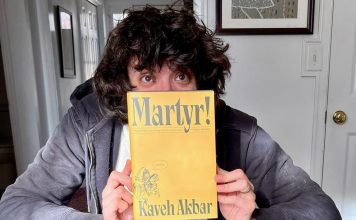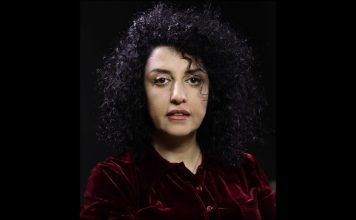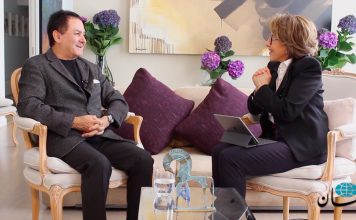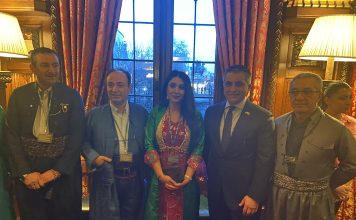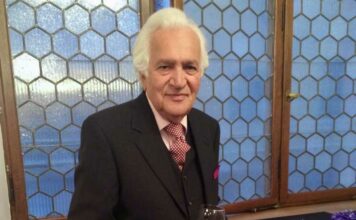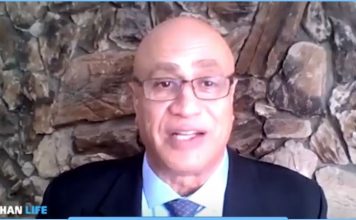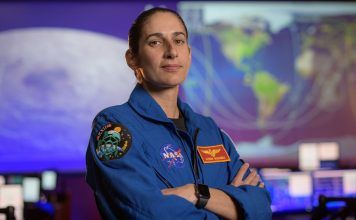By Kayhan Life Staff
Gaia Artificial Intelligence is a technology startup whose aim is to transform the architecture, engineering, and construction (AEC) industry.
Gaia AI, founded by Philip K. Parvaneh and Daan van der Zwaag, brings together architects, construction companies, and real estate developers to convert ideas into detailed visuals rapidly. It streamlines the design stages and simplifies the process of applying for permits.
Architects typically spend about 30 percent of their project development time on the initial design stage, which results in a repetitive exchange of ideas between the architect and the client. Gaia AI aims to reduce this time to 10 to 15 percent by effortlessly producing realistic renders.
For anyone wishing to construct, remodel, or design their home, Gaia AI lets them take a photo of the plot of land or interior, input a simple design prompt or a rough sketch, and quickly generate high-quality, realistic images. In other words, users can visualize their homes and reach an agreement with stakeholders, speeding up the initial design phase.
Gaia AI is also developing a feature to create building permits for submission to local authorities, addressing the complexities of zoning laws.

A recipient of the ‘2024 Cornell Tech Startup Contest’ award, Gaia AI has gained recognition and forged a partnership with Novas, the leading prefab construction firm in the Netherlands.
Gaia’s mission is also to be sustainable.
With 40 percent of all global CO2 emissions coming from buildings, Gaia AI’s tools have the potential to significantly impact the environment, highlighting the startup’s commitment to sustainability.
Gaia stands for Generative AI Architect, but Gaia is also the Greek Goddess of Earth.
Kayhan Life recently interviewed Philip K. Parvaneh, the Iranian-American co-founder of Gaia AI.
What inspired you to start your own company? Please share the driving force behind your entrepreneurial journey and how it connects to your startup’s mission and vision.
My first exposure to the startup culture was during an internship in a WeWork office in Manhattan during my undergraduate studies. Even though I was working two other jobs and a summer class that summer, the startup environment had drawn me in. While I was an engineer for a startup, I enjoyed its ‘chaotic’ workstyle. The downside of the internship was that I was not passionate about the company, but I knew if I did my own, this would be the ideal job for me.
After graduation, I entered the corporate world, getting stuck in the same routine, working on similar issues on a day-to-day basis, and getting everything done, which took a long lifecycle of many approvals from multiple stakeholders. That is one reason why I chose to pursue my master’s at Cornell Tech: to get out of the corporate world, do a deep dive back into the startup world, and see how I can begin my journey.
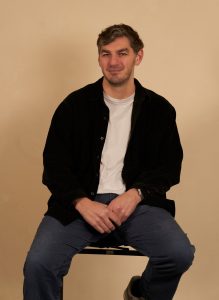
Please share what sets your AI startup apart from your competitors.
While many talented individuals are working in this exciting space, what truly sets Gaia AI apart is its unique ability to capture the earliest stages of the design process and revolutionize the automation of permit applications. Through our partnership with Novas, the largest prefab construction company in the Netherlands, we identified a significant pain point in their workflow — the time-consuming process of creating design renders for their permit applications.
We didn’t just automate the images; we automated the entire permit process. This breakthrough has resonated with our clients and has become a crucial part of our Go-to-Market strategy. It propels Gaia AI to capture an additional step in the client’s lifecycle journey and brings us closer to our goal of revolutionizing the entire workflow in the AEC industry.
Can you give us a sense of the team behind Gaia AI?
The strength of Gaia AI lies in its founding team, which combines vision and technical expertise. Daan van der Zwaag, our CEO, brings a deep love for architecture and design, while I, as the CTO, provide stability and a solid technical background in AI/ML [Artificial Intelligence/Machine Learning]. Together, we are driving Gaia AI towards a sustainable future.
Can you tell us about yourself – your background and formative years?
I was born and raised in New Jersey, USA. My father is Iranian-American, and my mother is Irish-American. Before Gaia, I received my bachelors in computer science from Rutgers.
After graduation, I started as a software engineer at DTCC (Depository Trust & Clearing Corporation). At DTCC, I worked on successfully launching two new products the firm was building for internal and external clients.
After three years at DTCC, I was ready for a change and received an offer from BlackRock as an engineer for their Aladdin product suite; however, a week before the start date, I was accepted to Cornell Tech’s Master of Engineering in Computer Science program. While it was a hard decision, Cornell Tech’s dedication to the school’s entrepreneurship and Startup Studio program drew me. I turned down my BlackRock offer to leave fintech and explore the startup lifestyle.

How did you and Daan meet?
Daan and I first met during my winter term at Cornell Tech [CT] when I was in a study abroad program. At CT, the school has a joint program with the Technion Institute of Technology [in Haifa, Israel]. Even though Daan had a background in front-end development and design, he convinced the school to let him be the first student to be sent to the Technion campus to study architecture, following his lifelong passion.
While I was abroad, I met Daan on campus one day, and he started showing me some of his work using an early-stage generative AI model he created to help him with his studies. Instantly, we connected over this. Going back and forth with ideas of improving the models and scale to a professional level began the inception of Gaia AI.
What milestones has your company achieved so far?
One of the first milestones we hit early on was at Cornell Tech. At CT, no matter what program you are in, MBA, CS, or Law, there is a startup competition at the end of the school year. Students team up and pitch a business idea to a panel of investors, professors, and industry leaders for a chance to win a $100,000 investment from Cornell to embark on their startup journey.
Daan and I teamed up with Gaia AI as our company. I am very proud to say that we won the competition and secured the investment from the university, joining a prestigious community as one of the first 100 startups to spin out of Cornell Tech.
Cornell has been highly supportive of us, and this investment made it possible for us to work full-time on Gaia AI, focusing on scaling to a full-ledge business, which we are now in the process of fundraising for our pre-seed round.
What challenges have you faced during the startup journey?
With any startup, there are many ups and downs. One challenge we faced early on was with any AI models; we needed to utilize GPUs [Graphics Processing Units] to create these renders and automation, which has a high price point due to the increasing demand, as seen by the recent surge in Nvidia. As a young startup, we try to keep costs minimal and be frugal with spending. We needed to figure out how to sustain growth against the high cost of GPU usage. We found that the big tech companies have programs for startups to address this need.
Fortunately, we were accepted into the “Google for Startups” program, which grants us Google Cloud computer credits. With these credits, we built on cloud infrastructure using Google Cloud technologies to scale our business and avoid paying for the high GPU costs.
From a business perspective, one challenge we faced was finding that crucial differentiator from our competitors. We discovered this through an intensive feedback cycle from our early adopters and constant reiterations. This is how we see our wedge of permit automation. For any challenge we face, we know there will be many more to come, but it requires a lot of thinking outside the box and being creative about how we can address the issue at hand.
How do you envision the future impact of your AI technology?
Given how rapidly generative AI and technology are moving, anything is possible. We always envisioned Gaia as having this beehive network where we can gather data and share insights from anywhere in the world to make buildings more sustainable and efficient.
A house in Bali may have requirements similar to those in California. With Gaia, a contractor can access locally sourced materials quicker than ever, determine exact zoning requirements, and accelerate the entire construction process tenfold.
Since day one, our goal with Gaia AI has been to build better buildings quickly. With growing macro trends like the EU Green Deal, there has never been such a demand for energy-efficient buildings. Gaia AI is uniquely positioned to address these issues. We can take a particular geolocation from a pure technology perspective and plug in a few desired inputs.
With Gaia AI, you can generate an exact floor plan, extrude it to a 3D model, create lifelike renders of the interior and exterior, recommend where to buy furniture similar to the ones in the renders, and even put on a VR/AR hardware to walk through the final output before construction even starts. While we are targeting the early-stage design process right now because the technology is still developing, we see Gaia AI to be able to capture this entire workflow.

